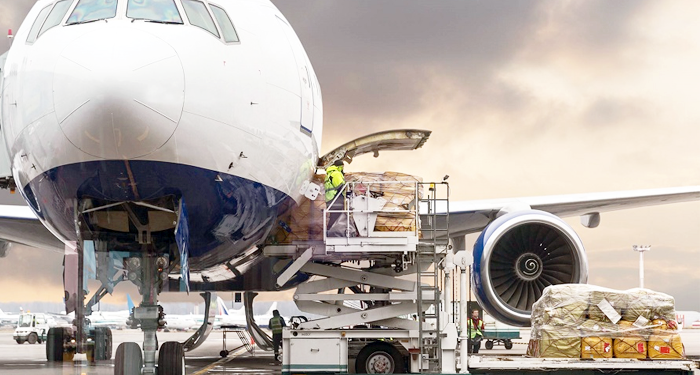Players in the Nigerian cargo business have lamented the high cargo tariff in the sector, calling for more transparency on the part of the government and its agencies.
Those spoken to by Nairametrics in Lagos, said that most of the cargo charges imposed on cargo planes and exporters are illegal or not ticketed, no wonder most cargo aircraft depart the country almost empty.
Speaking on the issue in an interview with our correspondent in Lagos, Mr. Segun Musa, a frontline freight forwarder, lamented that there are several escalating charges on air cargo processing in Nigeria, which discourages exporters and cargo airlines from freighting goods out of Nigeria.
Airports not business-friendly
Musa insisted that the airports are not cargo friendly and called on the government to relax the charges, saying that some of them are either multiple or illegal.
- He said: “How do we make our airports business friendly? If the airports are not business friendly, definitely, we won’t have much freight traffic. Every cargo freight that comes into Nigeria, they are not just coming for passengers, it is also for additional income, which is what the airlines are using to add to their revenues.
- “If they have to fly the aircraft belly empty, definitely, they have to stop going for aviation. We need to work out the factors that are affecting us not to have more freights for our aircraft. The more the aircraft come in and fly empty, the higher the freight charge is.”
He also called on the government to change its revenue drive policy and targets for the various aviation agencies and the Nigeria Customs Service (NCS).
Ghana as an example
Also, Mr. Chris Aligbe, aviation expert, said that it is necessary for the government to cut down on its taxes for the players in the industry in order to attract more players and business to the sector.
For instance, he explained that Ghana in a bid to attract businesses to its country, is giving business moratoriums to investors, a situation, which he said further brings in more business into the country.
He insisted that Nigeria could take a cue from this and give some leverage to business owners in the country.
- “So, when you call on the government to cut down taxes, they won’t listen to you. They will think you are playing. Of course, it’s a government, but you need to drive investments and you don’t drive investment with whatever you are doing now.
- “Those who drive investors, sometimes, you give them a five year moratorium to attract them. Go to Ghana, the investors they are having in Ghana have a lot of leeway than those we are having in Nigeria.”
Cargo statistics in Nigeria
Statistics obtained by our correspondent revealed that in the last five years, 2017 to 2021, at least 718,583,977.64kg of cargo, representing 78.8 per cent were imported into Nigeria, while the country could only reciprocate with 21.2 per cent of 152,394,765.83kg of cargo within the period.
Also, it was gathered that at least 16 sundry charges were imposed on air cargo importers and exporters by the different government and private organisations in Nigeria and 11 out of the charges were either illegal or not ticketed.
However, Chapter 84 of the Customs and Excise Management Act, states that duties are not charged on exports except on certain mineral and petroleum products, but are levied on imports.
But, the rates vary for different items, typically from 5 per cent to 35 per cent, and are assessed with reference to the prevailing Harmonized Commodity and Coding System (HS code).
Some of the charges imposed on imported cargo are 7.5 per cent Value Added Tax (VAT), 5 per cent Cargo Service Charge (CSC) statutorily collected by the Nigerian Civil Aviation Authority (NCAA), N5/kg as fee for weighing machine by the Nigerian Aviation Handling Company (NAHCO) Plc and the Skyway Aviation Handling Company (SAHCO).
Others are about N860/kg fee charged by airlines to transport air cargo between Nigeria and London for instance, N5 to N23/kg by Federal Airport Authority of Nigeria (FAAN), Customs charges of N60 – N97/kg and airline documentation charge.
Also, plant quarantine service fees for sanitary certification, association dues and Federal Operations Unit (FOU) charges on packaged goods, while officials of the anti-bomb squad of the Nigeria Police Force, National Agency for Food, Drug Administration and Control (NAFDAC), Standard Organisation of Nigeria (SON), and National Drug Law Enforcement Agency (NDLEA) and others are charges collected from importers.














